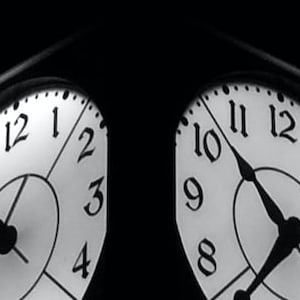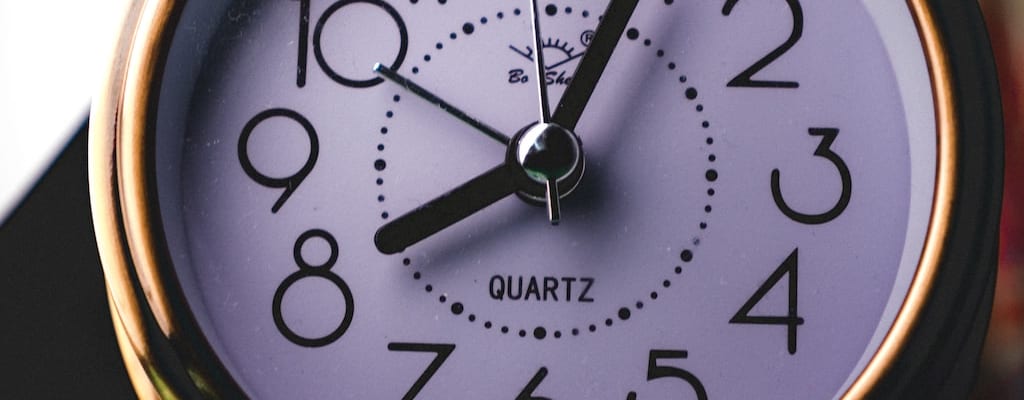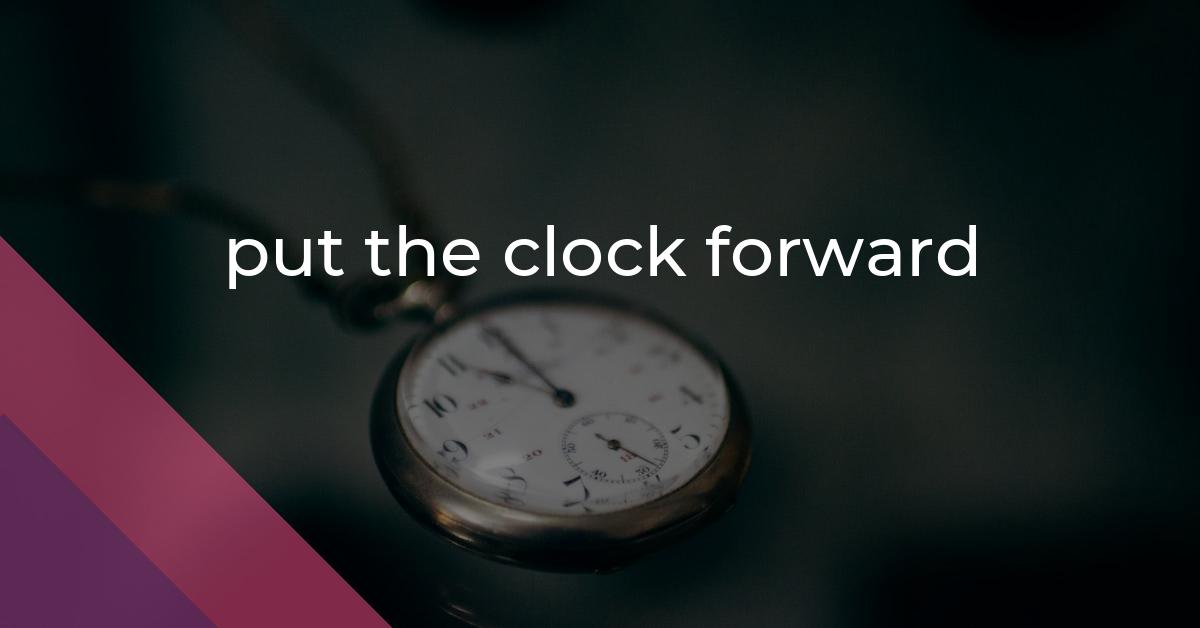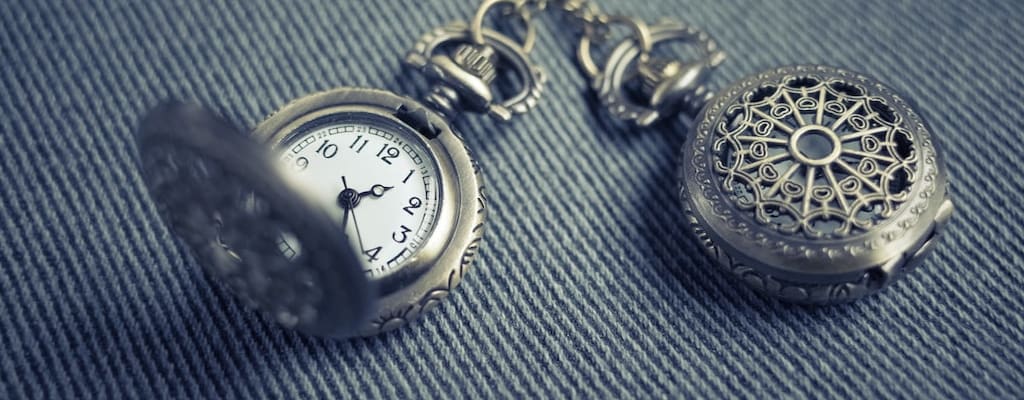put the clock forward: Idiom Meaning and Origin
What does ‘put the clock forward’ mean?
The idiom "put the clock forward" means to adjust the time on a clock or watch to a later time, usually in order to account for daylight saving time or to keep up with the correct time.

Idiom Explorer
"Set one's watch back" means to adjust the time on one's watch to an earlier time, often in response to changing time zones or to cheat or deceive others. It can also be used figuratively to mean regressing or going back in time.
The idiom "run the clock down" means to intentionally use up time in order to delay an event or outcome.
The idiom "run out the clock" means to intentionally waste time or delay the completion of a task or event, often to secure a favorable outcome or simply to avoid unwanted consequences.
The idiom "run late" means to be behind schedule or to not arrive or finish something on time.
The idiom "run down the clock" refers to a situation where a person intentionally takes actions to use up time, usually in order to avoid or delay a specific event or outcome.
The idiom "round the clock" means continuously or without stopping, emphasizing the full 24 hours of a day.
The idiom "reset the dial" means to start from the beginning or to go back to the initial position or state.
The idiom "ready up" means to prepare or get ready for a particular task or event. It implies taking action to be fully prepared and organized.
The idiom "race against time" means to hurry or work quickly to complete a task or reach a goal before a deadline or before it becomes too late.
Idiom: put the clock back
Meaning: To revert to a previous state, usually with negative connotations, typically referring to the inability to change or reverse past actions or circumstances. It emphasizes the impossibility of returning to the way things were before.
FAIL
The idiom "put the clock back" is often used in contrast to "put the clock forward." While "put the clock forward" refers to moving the time ahead, "put the clock back" means to move the time backward, typically by one hour. This adjustment is usually done when daylight saving time ends, and clocks are set back to standard time. The act of putting the clock back is similar to putting the clock forward but in reverse, effectively gaining an extra hour of sleep.
The idiom "set one's watch back" is closely related to "putting the clock back." It refers to the same act of adjusting the time on a watch or clock to move it back by one hour. While "putting the clock back" is a more general phrase, "set one's watch back" specifically emphasizes the adjustment of a personal timepiece.
The phrase "bring forward" is often used in relation to scheduling and time management. It means to move a planned event or meeting to an earlier time or date. In contrast to "putting the clock forward," which involves adjusting timepieces, "bring forward" involves rescheduling activities or events to occur earlier in the day or week. This phrase is commonly used in a professional or organizational context.
On the other hand, the idioms "run down the clock" and "run out the clock" have different meanings compared to "put the clock forward." These idioms are often used in sports or competitive situations to describe a strategy of intentionally wasting time or delaying the game's end. "Running down the clock" refers to the deliberate act of using up remaining time to maintain a lead or avoid giving the opponent a chance to score. "Running out the clock" is similar but specifically refers to using up all the remaining time until the game or competition ends. Both idioms emphasize the strategic manipulation of time to achieve a desired outcome in a competitive setting.
The idiom "put the clock forward" is commonly used to describe adjusting the time on a clock or watch to move it ahead by one hour, usually in the context of daylight saving time. The act of putting the clock forward has taken on a symbolic meaning beyond adjusting timepieces, representing progress, change, and embracing new opportunities. Furthermore, related idioms like "put the clock back," "set one's watch back," "bring forward," "run down the clock," and "run out the clock" provide additional nuances and contexts related to time adjustment, scheduling, and strategic time management.
Example usage
Examples of how the idiom "put the clock forward" can be used in a sentence:
- Don't forget to put the clock forward tonight for Daylight Saving Time.
- Every spring, we have to put the clock forward one hour.
- They reminded us to put the clock forward before going to bed.
More "Time" idioms



